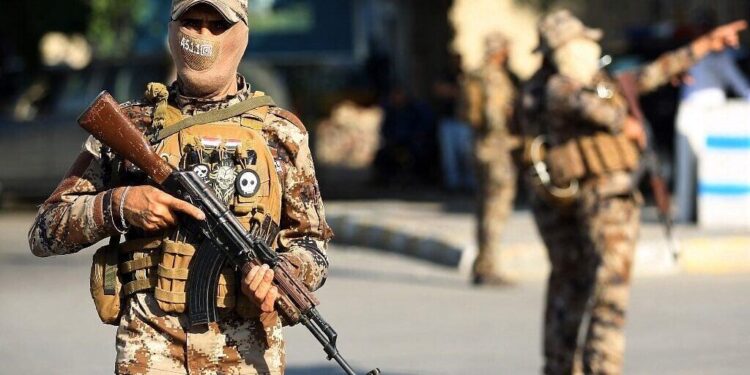Paramilitary Withdrawal from Khartoum Reshapes Sudan’s Civil War Landscape
In a notable development within Sudan’s enduring civil war, paramilitary forces have begun pulling back from the capital city of Khartoum, signaling a crucial turning point in the ongoing hostilities between rival factions. Previously entrenched as a dominant force in the capital, the Rapid Support Forces (RSF) are now retreating toward peripheral and border regions. This strategic repositioning is more than just a military maneuver; it carries profound consequences for both combatants and civilians alike. Experts warn that this withdrawal could significantly diminish RSF’s control over key urban centers, potentially creating power vacuums that competing groups might exploit—thereby escalating violence in adjacent territories.
The ramifications of this shift include:
- Surge in Armed Clashes: As RSF units disperse, confrontations among various militias are expected to intensify, especially across volatile areas such as Darfur.
- Deteriorating Human Security: The movement into less governed zones raises fears about unchecked violence against vulnerable populations.
- Evolving Political Landscape: The absence of organized paramilitary presence within major cities may open avenues for emerging political actors to assert influence.
This evolving scenario presents complex challenges for international stakeholders who must adapt their approaches—not only addressing immediate security concerns but also anticipating long-term instability stemming from fragmented armed groups. According to recent UN reports, civilian casualties have surged by over 30% since early 2025 amid these shifting frontlines.
Civilian Impact and Growing Humanitarian Challenges Amid Intensified Fighting
The withdrawal of paramilitary fighters has exacerbated an already critical humanitarian emergency throughout Sudan. Civilians caught amidst escalating clashes face increased threats including widespread violence and severe shortages of essential supplies like food and medicine. Vital infrastructure—ranging from hospitals to schools—has suffered extensive damage or destruction, leaving communities deprived of basic services during harsh conditions.
Aid organizations report mounting difficulties delivering assistance due to security restrictions imposed by warring factions and damaged transport routes. Recent data indicates that humanitarian access has declined by nearly 40% compared to last year, severely limiting relief efforts aimed at displaced families who number over two million nationwide according to OCHA statistics. These obstacles underscore an urgent need for coordinated ceasefire agreements enabling safe passage for aid convoys and protection for non-combatants caught in conflict zones.
| Humanitarian Obstacles | Consequences for Civilians |
|---|---|
| Restricted Aid Access | Worsening food insecurity affecting millions |
| Escalation in Armed Violence | Rising numbers of civilian injuries and deaths |
| Destroyed Infrastructure & Services | Non-functional healthcare facilities across conflict zones |
Global Response Strategies: Pathways Toward Peaceful Resolution in Sudan
The international community faces mounting pressure to formulate comprehensive strategies addressing both immediate humanitarian needs and long-term peacebuilding objectives amid Sudan’s turmoil. Prioritizing robust diplomatic engagement is essential; global powers should collaborate closely with respected regional mediators such as the African Union (AU) and Intergovernmental Authority on Development (IGAD) to facilitate inclusive dialogue among all stakeholders involved in the conflict.
An effective approach may involve establishing a dedicated multinational monitoring mission tasked with overseeing ceasefire compliance while supporting humanitarian operations on the ground—a model similar to successful peacekeeping efforts seen recently in Mozambique’s insurgency response.[1] Additionally, targeted sanctions against individuals or entities obstructing peace processes can reinforce international resolve toward stabilizing Sudanese society.
Sustainable reconciliation will also depend heavily on empowering grassroots initiatives that foster intercommunal understanding across diverse ethnic groups within Sudanese society. Funding local civil society organizations focused on dialogue promotion remains critical.(source)
- Enhanced Humanitarian Assistance: Scaling up support targeting displaced persons’ urgent needs including shelter, nutrition, water sanitation;
- Capacity Strengthening: Providing training resources enabling local actors’ participation effectively in peacebuilding;
- Civic Education Campaigns: Promoting awareness around unity values aiming at reducing sectarian tensions;
- (1) Reference: Mozambique Peacekeeping Successes – UN Reports 2023;
Looking Ahead: Navigating Uncertainty Amidst Shifting Conflict Dynamics in Sudan
The ongoing pullback of paramilitary forces from Khartoum marks a transformative moment within Sudan’s protracted civil war — one fraught with uncertainty yet laden with potential implications for regional stability moving forward. This tactical redeployment not only alters battlefield realities but also intensifies existing humanitarian emergencies impacting millions caught between warring parties.(source).
The eyes of global observers remain fixed on how these developments unfold — emphasizing an urgent call for renewed diplomatic momentum aimed at securing lasting peace accords prioritizing civilian protection above all else.(source). As events continue evolving rapidly day-by-day throughout mid-2025,a decisive window opens where concerted action could either stabilize or further destabilize this fragile nation grappling with decades-long strife.














